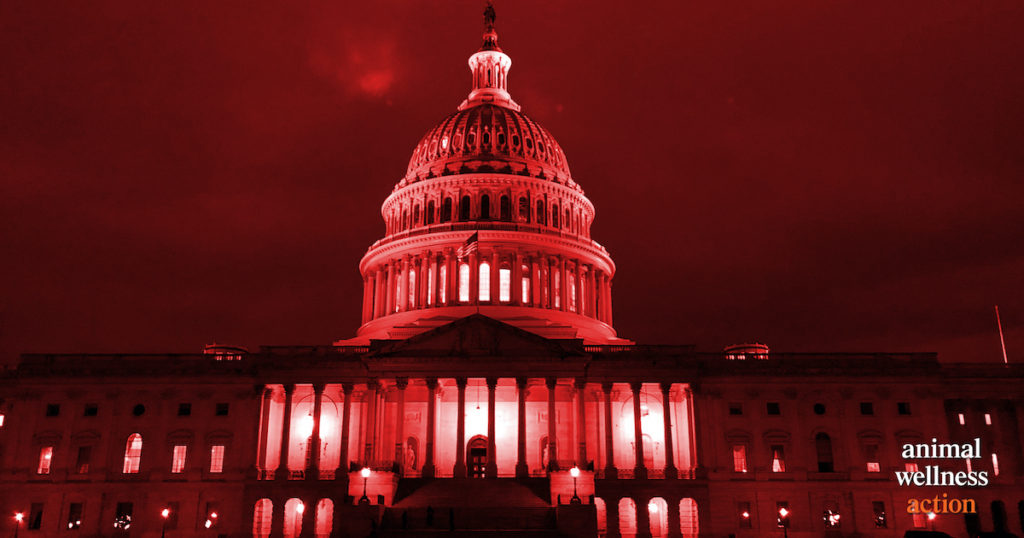Some weeks ago, we interviewed University of Tennessee history professor Ernest Freeberg on the Animal Wellness Podcast as part of the launch of his book, “A Traitor to His Species,” a biography of the late ASPCA founder Henry Bergh. Freeberg recounted Bergh’s focus on helping all animals, but conveyed Bergh’s dedicated focus in fighting the abuse of equines whose place in late-19th-century America was central to the movement of a fast-rising U.S. economy.
Now 150 years later, even though horse abuse still rears its head with numbing frequency, there is no single national organization exclusively dedicated to confronting the continuing mistreatment horses endure in contemporary America
At Animal Wellness Action, we work to be a stalwart advocate for horses, focusing reform efforts in four major categories of equine cruelty and exploitation: the slaughter of U.S. horses for human consumption throughout North America, the race-day doping of Thoroughbreds and other breeds in more than 35 states, the persecution of wild horses and burros across their range in the West, and the “soring” of Tennessee Walking Horses and two other breeds in the show world meant to induce an exaggerated gait.
It’s a painful indictment of our movement to acknowledge there’s been little legislative progress at the federal level to rid the nation of these abuses in a half century. While we’ve secured legal protections for so many other animals during this time — banning animal fighting throughout the United States, forbidding the trade in dog and cat meat, enacting a federal anti-cruelty law, and adopting so many other strictures on abuse — the law has been static when it comes to stopping organized cruelty to horses.
In 1971, Congress passed the Free-Roaming Wild Horses and Burros Act, yet the Bureau of Land Management is still conducting helicopter roundups of thousands of horses and this year is on pace to round up and remove 20,000 horses, separating family members, subjecting them to perilous miles-long chases, and wiping out entire herds from our rangelands.
Though there’s been some progress against horse slaughter in the states, there’s no federal law forbidding the export of horses to Canada and Mexico for human consumption. While legislation to forbid this trafficking of animals for butchering has been introduced for more than two decades in Congress, there’s been little progress and American horses continue to endure long-distance transport and terrible mistreatment at the hands of predatory and unscrupulous “kill buyers” – individuals who snatch up horses at auctions and kill pens to ship them to foreign meat companies.
In 1970, the Congress passed the Horse Protection Act authored by the late U.S. Senator Joe Tydings, D-Md., to combat horse soring, but the law hasn’t had a favorable upgrade since then. We’ve worked eight years to pass the Prevent All Soring Tactics (PAST) Act to forbid the use of ankle chains and large, heavy stacked shows and to establish felony-level penalties for abuses, but have run into stubborn opposition from several powerful lawmakers from Tennessee and Kentucky. Those lawmakers have been successful in bottling up reform and allowing trainers to hurt horses to prep them for the show ring.
And despite a federal statute that enables national wagering on horse racing, the Congress has not passed legislation to ban race-day doping — even after eight years of seeing reform-minded lawmakers advance legislation and a steady drumbeat of catastrophic breakdowns and horrifying deaths of race horses on American race tracks that have prompted calls by more than a few to see the entire sport shut down.
We are getting closer to enacting legislation to address the soring of Walking Horses and doping of Thoroughbreds, but there are voices within the animal welfare movement and within these industries standing in the way of progress.
Today, on The Animal Wellness Podcast, we talk with Mr. Clant M. Seay, one of those people bringing single-minded focus to the task of helping horses and securing legal reform to protect them. Specifically, he’s devoted the last five years of his life to ending the scourge of soring. He’s formed the Citizen’s Campaign Against Big Lick Cruelty and organized hundreds of people to protest soring at horse shows throughout the South. He’s organized nearly a million signatures on the internet to rally to the cause through various Change.org petitions to end soring. He’s rescued horses such as Gen’s Ice Glimmer to dramatize their plight. And he’s pressured local lawmakers to bar horse shows in their communities that put soring abuses on display in Jackson, Mississippi, Panama City Beach, Florida, the North Carolina State Fair, and others.
We’re pleased that Mr. Seay is allied with Animal Wellness Action to push for revisions to the PAST Act with the Tennessee Walking Horse industry to break the impasse over horse soring and get the measure through the U.S. Senate. This legislation will finally bring relief to the horses — to ban the action devices; to restrict the use of heavy, stacked shoes, to forbid the use of braces that mangle the horses’ tails for cosmetic purposes; and, critically, to impose felony-level penalties on perpetrators.
Touched by the Tennessee Walkers he’s had in his life, Clant is giving everything he’s got for the horses. We’re excited he’s using his powerful voice to rid these Walking horse shows of intentional abuse. Take action today by clicking this link and telling your U.S. Senators to help pass the revised PAST Act and stop this abuse!
